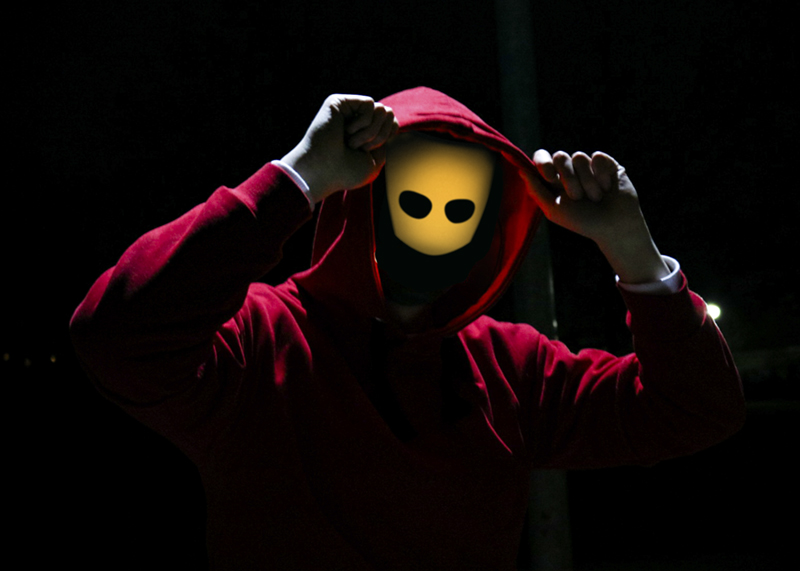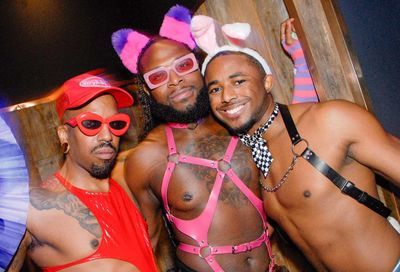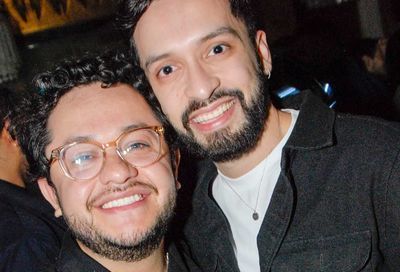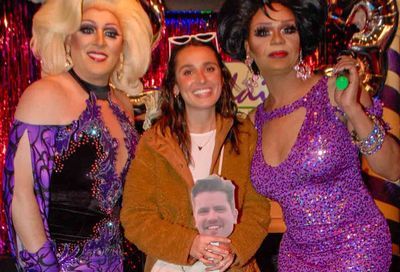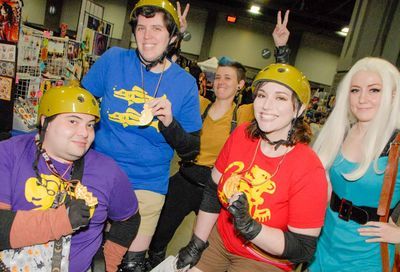Focus on Frustration
Government and grassroots debate responses to D.C. hate crimes
Wes Della Volla wants to know why the man who was arrested on Oct. 1 for allegedly threatening to run over him and his boyfriend in a crosswalk, before getting out of his car to allegedly hurl a brick at the hand-holding couple at 15th and P Streets NW on Sept. 27, was released. He wants to know why the case was ”thrown out.” But over the past two and a half months since the incident, in his quest for answers, it seems Della Volla has only learned one thing: The U.S. Attorney’s Office for the District of Columbia (USAO-DC) does not return everyone’s phone calls. It’s particularly unsettling, considering the man who followed Della Volla and his boyfriend home, reportedly said to the couple, ”Good, now I know were you live.”
On Friday, Dec. 12, during a City Council hearing on District hate crimes called by Councilmember Phil Mendelson (D-At large), Della Volla shared the Council Chambers of the John A. Wilson Building with Philip Eure, executive director of the Office of Police Complaints; Rodney Parks, who heads Metropolitan Police Department’s homicide branch; and Patricia Riley of the USAO-DC.Councilmember David Catania (I-At large), who is gay, also had questions for the USAO-DC.
”We have public testimony of a citizen of the city who had a brick thrown at him,” said Catania. ”It was a serious issue, and to not even contact him about the circumstances, to somehow say, ‘Well, it’s your word against theirs,’ that seems to me a little wanting if you don’t even take an opportunity to engage the alleged victim.”
Riley replied that she could not comment on the case. ”I don’t have any facts about this case,” she said, before Catania asked her hypothetically: ”If someone threw a brick at your head and missed, would you not consider that a serious assault? I would. Does that not meet the definition of a serious assault?”
”It certainly meets the definition,” Riley replied.
”It absolutely does,” Catania said. ”And that’s why it leaves some of us wanting.”
Chris Farris, helping to lead the newly revitalized Gays and Lesbians Opposing Violence (GLOV), was among the roughly 30 attendees at the hearing, organized, in Mendelson’s words, to ”explore how we are responding to hate crime.” In testimony, Farris highlighted several areas of concern.
”First, the statistics and numbers are murky at best,” Farris said. ”At every turn, when we have tried to get attention on this issue, the refrain from officials has been consistent and frustrating: They say that they do not see an increase in the numbers.”
Farris added that GLOV is concerned about police classification of hate crimes in the city, the level of awareness within the GLBT community, and the current state of the city’s youth, adding that many of the recent hate crime-related incidents have involved suspects that are classified as ”youths.”
Those concerns follow the death of Tony Randolph Hunter, a 37-year-old gay man from Clinton, Md., who was brutally beaten while walking from his car to nearby Be Bar, on Sept. 7, in the Shaw neighborhood. Farris cited Hunter’s case when expressing concern about the USAO-DC, which on Oct. 24 charged Robert Hannah with involuntary manslaughter in the Hunter case. Hannah claimed that Hunter approached him and grabbed his crotch before he attacked Hunter.
”They accepted as fact the defense of the murderer of Tony Hunter — without having at least spoken to the second victim of that horrific attack before the preliminary hearing,” said Farris. ”They are not pursuing cases as aggressively as they should, and they are not even attempting to seek maximum charges in hate crimes.”
That second victim, whose jaw was injured in the attack that killed Hunter, also testified. He asked not to be identified for fear of retaliation, in that, while only Hannah has been arrested, there were ”approximately four” attackers involved.
Mendelson seemed puzzled by Hunter’s case.
”Four perpetrators, one arrest, case closed,” he said. ”I don’t understand that. Two victims. Only one of them seems to be of any consequence here.”
”Yes [the case] is closed,” responded the MPD’s Rodney Parks. ”We have arrested an individual, we have charged him with the offense, but the continuing investigation goes into the prosecution phase and we seek to identify and apprehend all persons involved in the act. That is ongoing.”
Mendelson said the Hunter case sheds light on an area of law enforcement that needs improvement.
”Every now and then, there’s an issue that comes along,” said Mendelson. ”Six years ago, it was the fire at Dupont Circle, which focused our attention on 911 [calls] and the inadequacies there with 911. This case involving Tony Hunter seems to me a good case for us to focus on the police response, and the U.S. attorney’s handling of the case.”
Councilmember Jim Graham (D-Ward 1), said the handling of hate crimes is something that affects everyone in the city, gay and straight alike.
”I’m an openly gay member of this Council, but these issues concern everyone in the District of Columbia, because what we’re talking about here is someone being singled out for — very often — a violent attack, on the basis of a perception, a perception that they’re a member of a group that the attacker despises…. It may or may not be the reality.”
Todd Metrokin, who was badly beaten on July 13 in Adams Morgan by a group of young men, and who is also a leader of the new GLOV effort, offered testimony detailing his attack and how it changed his perception of law enforcement in D.C.
”My case was simple and straightforward,” he said. ”There was obvious serious injury, many witnesses, and a cell phone belonging to an attacker [recovered]. And yet my friends, family and I had to clamor to get attention. You see, when I hear of other bias-crime incident…and read about the proceedings in the Hunter case, and then hear from officials that there is no crime problem in D.C., my faith…in our criminal justice system is broken.”
A follow-up City Council hearing on District hate crimes is anticipated sometime early in 2009. To become involved with GLOV, visit www.glovdc.org.
Support Metro Weekly’s Journalism
These are challenging times for news organizations. And yet it’s crucial we stay active and provide vital resources and information to both our local readers and the world. So won’t you please take a moment and consider supporting Metro Weekly with a membership? For as little as $5 a month, you can help ensure Metro Weekly magazine and MetroWeekly.com remain free, viable resources as we provide the best, most diverse, culturally-resonant LGBTQ coverage in both the D.C. region and around the world. Memberships come with exclusive perks and discounts, your own personal digital delivery of each week’s magazine (and an archive), access to our Member's Lounge when it launches this fall, and exclusive members-only items like Metro Weekly Membership Mugs and Tote Bags! Check out all our membership levels here and please join us today!




